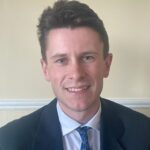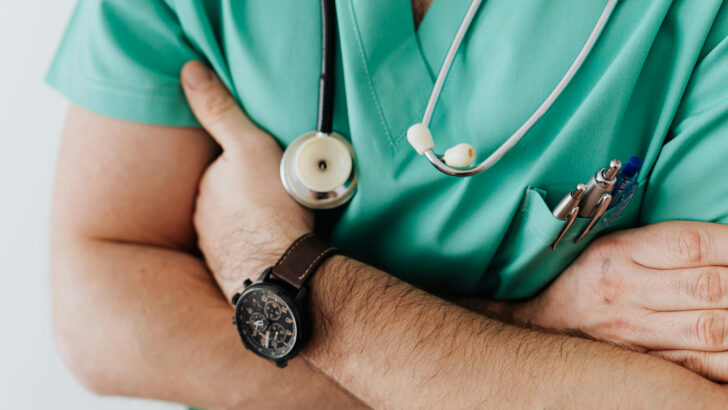Reflecting on the last decade in this country as a Catholic presents itself as somewhat of a painful task. Our country, now liberated from the oppressive and cruel past inflicted by the Church according to many given prominence in both media and politics, is now in a transitional period away from these austere times, rejoicing daily at the newfound compassion in society and inconsistently upholding a creed predicated on virtues such as ‘tolerance, inclusiveness and autonomy’.
In principle, these values would not be considered disagreeable by anyone’s standards if pinned to the wall in workplaces across the country, particularly autonomy, who doesn’t want autonomy? But it’s only when you delve into the subtleties and the conditional nature of Ireland’s 21st century interpretation of autonomy that you begin to realise that the problems underlying it are stark and deeply concerning.
Unity
Chief among the issues involving our modern understanding of the word ‘autonomy’ is the very sensitive issue of abortion. Most of us are fortunate as although we might react to the latest current affairs and news highlighting the further liberalisation of abortion laws in this country with dismay, many of us aren’t actually forced to confront the actualities of the increasing slide into the unknown, and instead we live vicariously through those who continue to stand up for their fundamental rights in a sea of secularist approaches.
Dr Keith Holmes, President of the Catholic Medical Association of Ireland, knows all too acutely about the difficulties facing Catholic doctors in this rapidly changing sociocultural environment. The organisation is set to hold its first in-person conference in 5 years this Saturday in Mount Argus titled ‘Building Blocks for an Ethics of Healthcare’ and he spoke to The Irish Catholic about the anticipation around the event and the greatest challenges Catholic doctors presently face in the country.
Being a Catholic doctor abroad was a minority position but a respected minority position and safeguards were enshrined to ensure that conscientious objection was respected”
Dr Holmes outlined that the organisation underwent a name change since its first conference almost 10 years ago, a name change that those involved felt better harmonised the group with other international Catholic doctor’s bodies, but the ethos of the group remains the same and enables other Catholic doctors to discuss the “live issues” of the day in a non-adversarial atmosphere.
“The change in name to Catholic Medical Association was to both align ourselves with other similar groups internationally, but also to reflect the growing interest in the area from nursing and other allied health professional staff,” Dr Holmes said. “We sought permission from the Irish Episcopal Conference to change the name and they graciously agreed.
“Our first conference was back in 2015. We’d been going for a couple of years before then. We’re a group of doctors, all of whom have trained abroad and realised that being a Catholic doctor abroad was a minority position but a respected minority position and safeguards were enshrined to ensure that conscientious objection was respected. This contrasts very starkly to the situation as it stands here in Ireland in respect of abortion.
“At that stage we were keen to try and come together as a group to act as a sounding board to each other and share ideas, particularly at a time when standards seemed to be becoming increasingly inimical to being a Catholic.
“Since then things have continued and gathered pace with respect to things like abortion and end of life issues such as euthanasia, etc. These are all very live issues at the moment and being discussed and considered.”
Mix
Similar to the experiences of many organisations during the outbreak of the pandemic, Covid “really blew a hole in everything” for the group according to Dr Holmes and this resulted in a cessation of in-person activity for five years. But the group is now once again gathering momentum and affording doctors with a Catholic conscience the opportunity to interact with one another and remind them that they’re not isolated from others who hold the same beliefs.
“It’s important for us to have a group who can support each other and in some way hold ideas together,” Dr Holmes said. “We come from very different areas, medically, but some of these issues impact us all.
“We’ve always had a mixture of doctors and members of the religious and some others. While it is our seventh conference, they were annual until Covid came and then really blew a hole in everything and we lost a lot of ground. Our last conference was in 2021 and that wasn’t in-person so this is our first in-person conference since 2019. So we’re trying to regain momentum that had been lost during Covid.”
We have two speakers who are priests, one of whom, Fr Luke MacNamara is also a doctor although non-practising. Then we have two doctors, one of whom is also a sister”
The schedule of the event is a curious one by modern norms and standards. There’s a healthy mixture of religious and medical, areas that would never be regarded compatible by today’s political establishment, all speaking on a vast array of essential and compelling topics. Underpinning this conference are the principles of the Church’s new document on human dignity, Dignitas Infinita.
“We have two speakers who are priests, one of whom, Fr Luke MacNamara is also a doctor although non-practising. Then we have two doctors, one of whom is also a sister – so we have a lot of cross-fertilisation.
“The title of the conference is ‘Building Blocks for an Ethics of Healthcare’. The cornerstone of it is really the new papal document Dignitas Infinita which outlines that dignity cannot be expunged by appeals towards ‘compassion’, because it is simply not our right as humans to intentionally take the life of another, even more so for healthcare professionals, who are tasked with protecting and upholding human life. So Fr Luke MacNamara will speak about that and the other speakers will be touching on areas which are relevant to that.”
Ethics
The dramatic sociocultural trends that have emerged in this country over the past decade have arguably impacted no other sector greater than the healthcare sector and Dr Holmes admits that issues like the government repeatedly dishonouring its promises on important ethical issues and the recent moves to see assisted suicide and euthanasia legalised in the country “worry” doctors and are both an “affront” to the principle of conscientious objection.
“The whole issue of end-of-life issues, including suicide and euthanasia, has really called into question the role of the doctor; whether a doctor is to uphold and support life,” Dr Holmes said. “We find the concept of medical personnel being involved in the deliberate taking of life to be anathema to the Hippocratic Oath.
“Most doctors of my acquaintance are very worried about these developments but the biggest worry is that it gets a foothold at all. Once these things get a toehold and once the exception is established as being acceptable then what you find is that the whole argument becomes distorted, the language becomes distorted, the word compassion becomes weaponised and suddenly the slippery slope starts again.
People are allowed to conscientiously object as long as they organise for the procedure to be carried out elsewhere”
“Even when the repeal of the 8th Amendment happened, abortion was meant to be something that was in exceptional circumstances and now with the recent review of it, the criticism of it is that it’s not more widely available more quickly. So clearly what may start as a founding premise very quickly becomes pushed aside and the floodgates open.
“I think with regard to abortion, the issue of conscientious objection, it’s very clear the direction things are going. People are allowed to conscientiously object as long as they organise for the procedure to be carried out elsewhere, which of course absolutely flies in the face of what proper conscientious objection is.
“Our fear is that the same line of undermining will continue – particularly with euthanasia and assisted suicide if it becomes law and that’s just a shocking affront to conscientious objection.”
The 7th Annual Conference will take place September 21 at the St Charles Centre, Mount Argus, Harolds Cross, Dublin 6W. Register online: www.icdln.ie. All welcome.


 Brandon Scott
Brandon Scott
